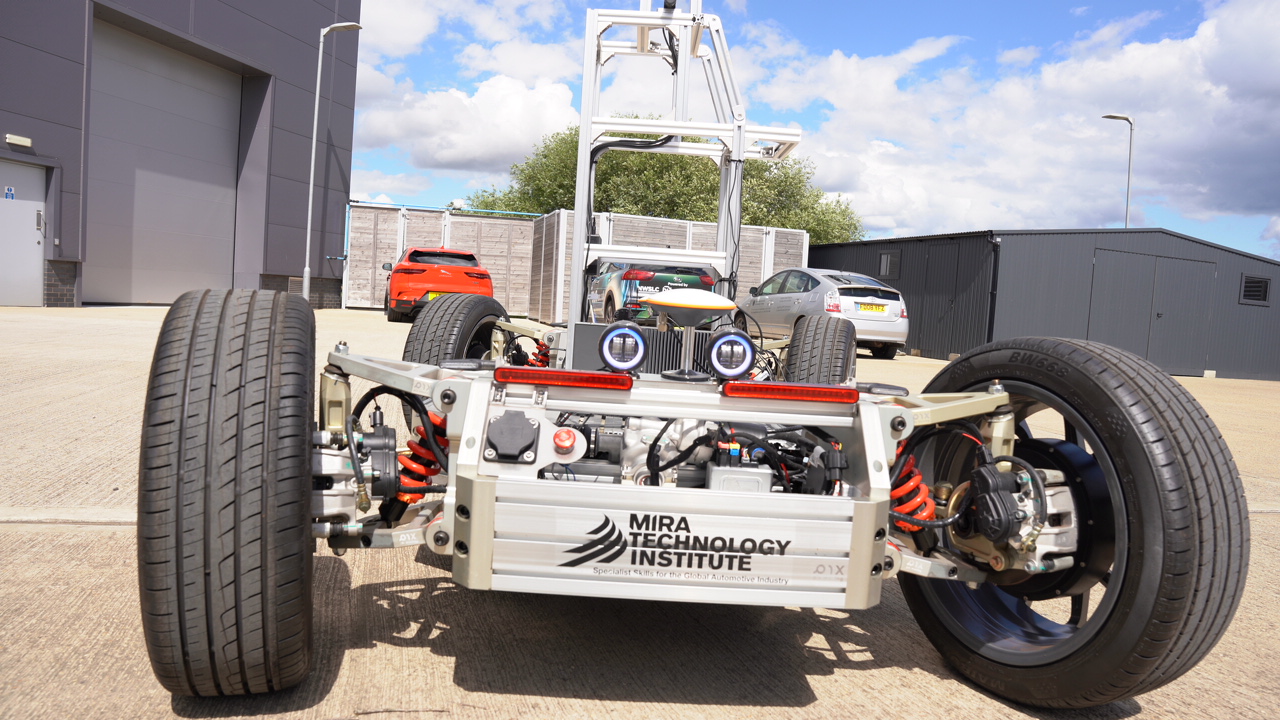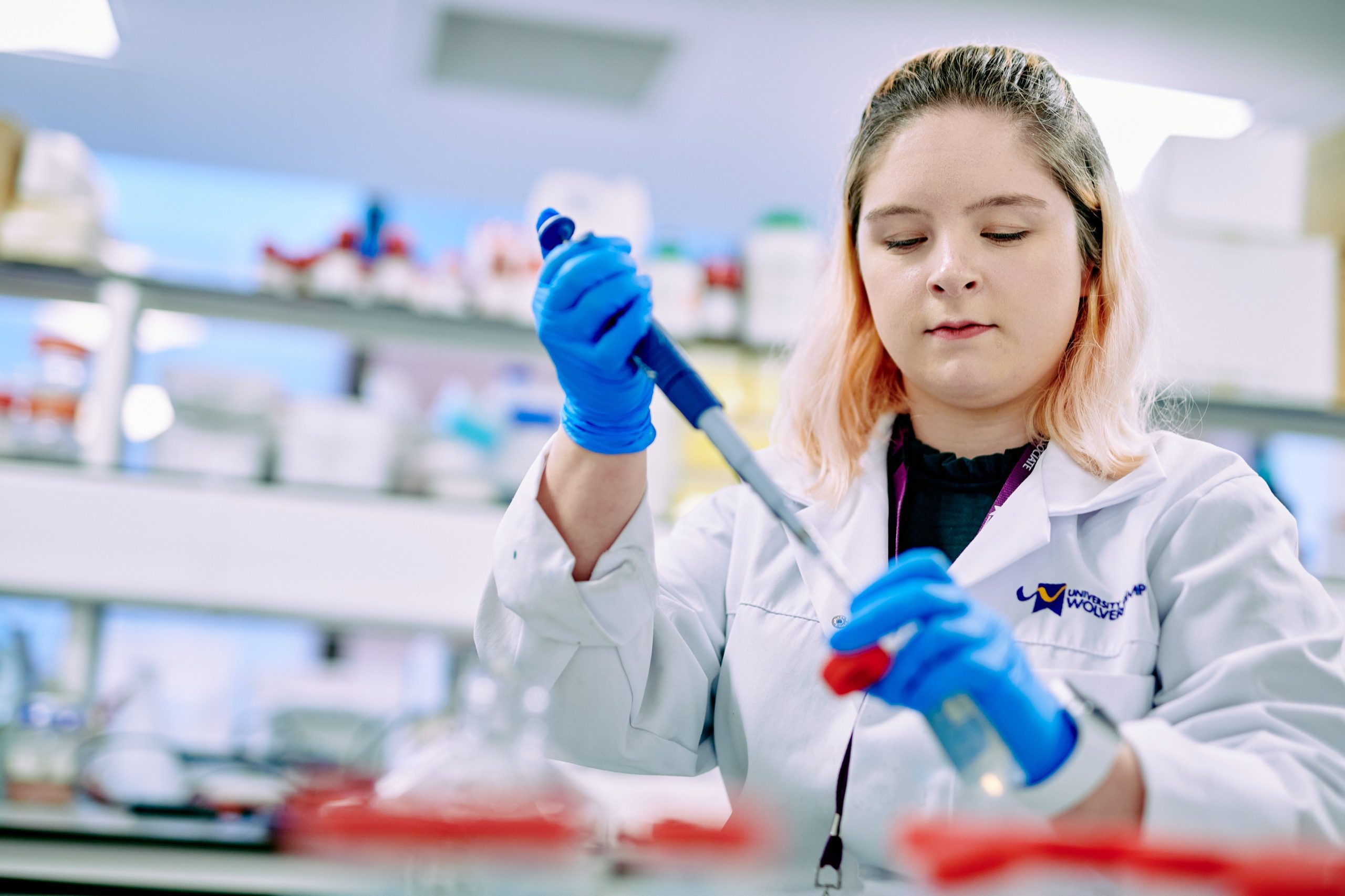Accelerating Change in the Life Sciences Sector
Precision Health Case Study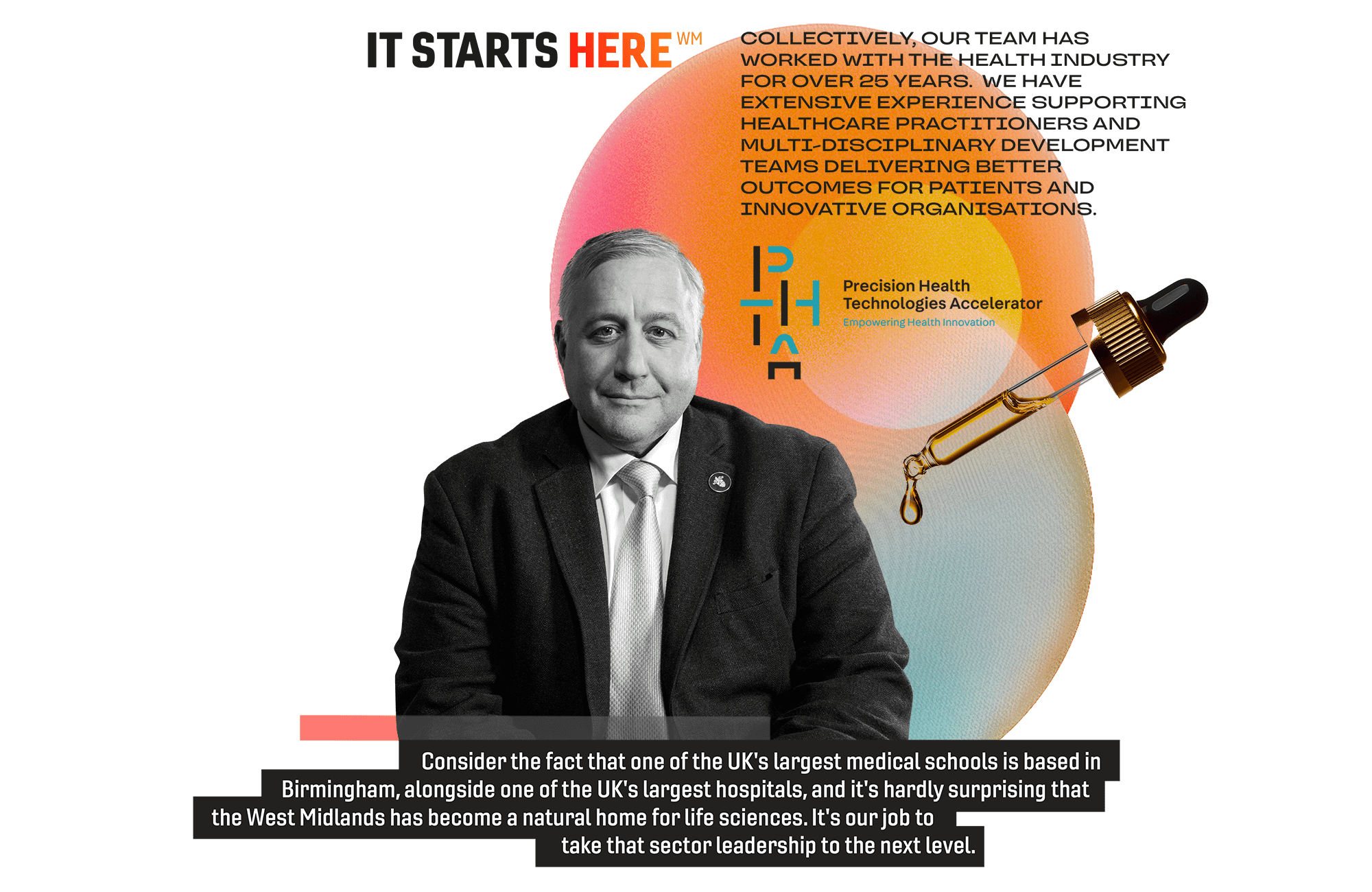
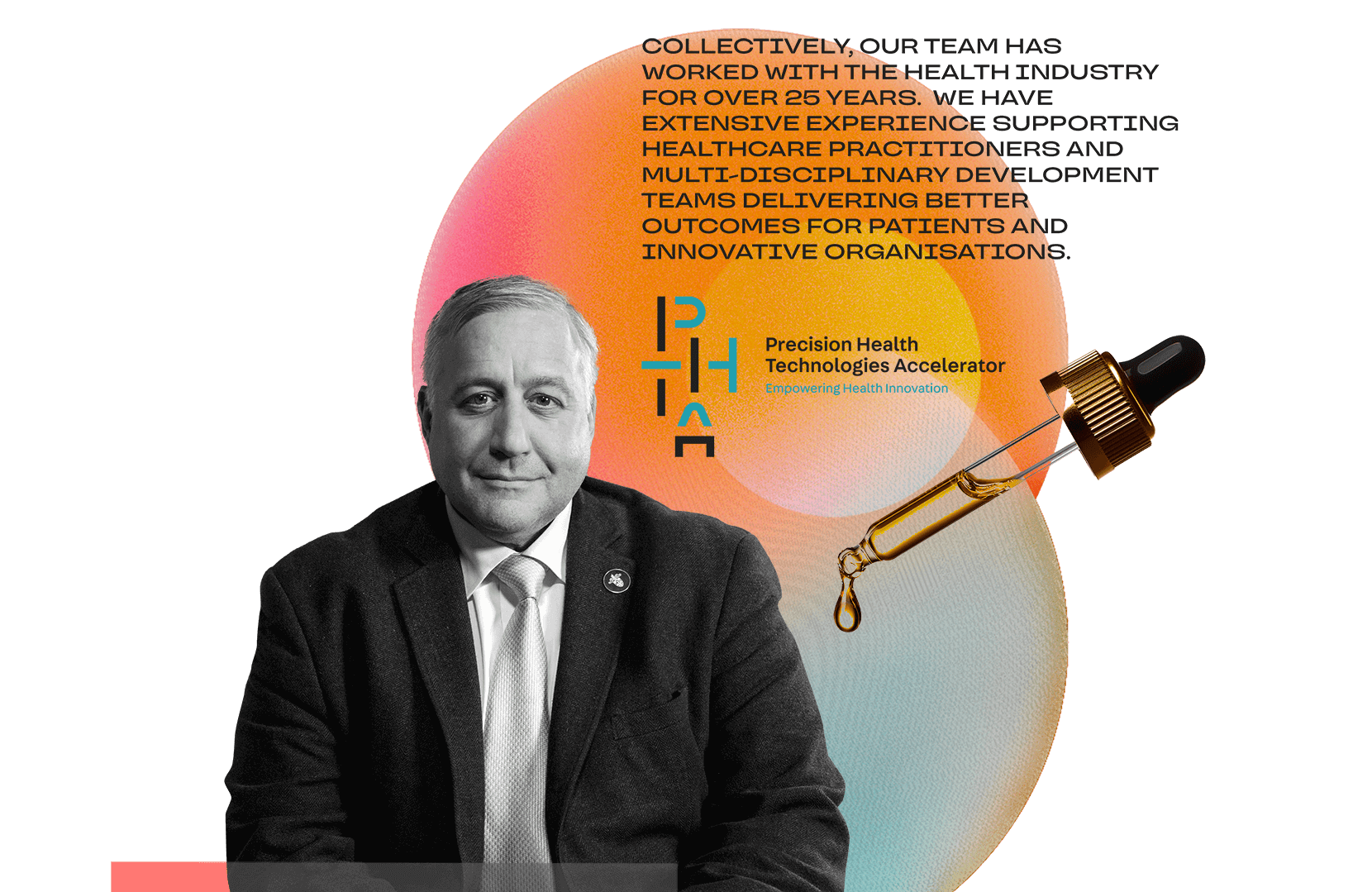
For several years, the West Midlands’ life sciences sector has been strengthening and growing. Now, with the opening of the Precision Health Technologies Accelerator (PHTA), the region is on the brink of becoming one of the nation’s leading life science hubs.
Gino Martini, professor and chief executive of the PHTA, says,
‘People sometimes overlook the West Midlands’ incredible heritage when it comes to life sciences. After all, the world’s first spinal X-ray, the first treatment for brain cancer, early work into anti-inflammatories – they were all pioneered right here in the West Midlands. Yes, we have a phenomenal manufacturing base – there are over 700 local MedTech companies driving innovation – but we also have first-class research facilities and outstanding life sciences centres of excellence. People sometimes don’t realise the breadth and scale of the sector within our region.’
Martini says the West Midlands’ strength in life sciences is partly due to its demographic make-up. There are nearly six million people living in the region, a population which is equatable to the whole of Scotland. 23% of inhabitants are ethnically diverse; over 20% are below the age of 16. These factors create an excellent natural test bed for trialling new healthcare solutions.
‘Consider the fact that one of the UK’s largest medical schools is based in Birmingham, alongside one of the UK’s largest hospitals, and it’s hardly surprising that the West Midlands has become a natural home for life sciences. It’s our job to take that sector leadership to the next level.’
The PHTA is the anchor tenant for the Birmingham Health Innovation Campus, a cutting-edge, ten-acre site nestled between Queen Elizabeth Hospital and the University of Birmingham. Martini explains,
‘The PHTA is a facility for scientists to work together in a cooperative way. We provide collaboration space, wet labs for experimenting, meeting rooms… Experts are on hand due to our proximity to the university and the medical school – we really want to create an environment that brings people with different backgrounds together, and allows conversations about new ideas to flourish.’
Martini believes collaboration and networking are critical to success in any area.
‘I went to a famous business school and we played the ‘sinking ship’ game: a ship is sinking, and you have to save items in a certain order. People answered individually at first, and then as a team. The team response, combining different disciplines and insights, got a better result every time. A collaborative group is always stronger than an intelligent individual.’
Networks and collaboration are not only key to effectiveness but also to idea generation. Martini recalls another experiment.
‘A famous company tried to map where inventions were happening in their business. They found that most sparks centred around coffee machines and canteens, the places where people mingle and collaborate. That’s what the PHTA will do, bring together clinicians, scientists, doctors and spark ideas for innovation.’
The accelerator also provides ‘grow on’ space: offices and labs that allow smaller businesses to expand from ten or 20 team members upwards. Martini stresses that supporting local talent is critical to the life science sector.
‘We want our entrepreneurs and innovators to be able to pursue new ideas. Of course, we want to keep talent within our region, but most importantly we want to keep it within the UK. The PHTA exists to help scientists and innovators progress and explore their ideas. We have capacity for twenty SMEs to develop to the next phase – that’s never been done in the life sciences sector in this region before.’
As a relative newcomer to the area, Martini has been impressed by the West Midlands’ facilities.
‘I’ve worked all over the world – Asia, America, Europe. I’ve also lived and worked in the life sciences ‘golden triangle’: London, Cambridge, Oxford. What we have on offer here is equal to if not better than anything I’ve seen anywhere else. There’s so much talent available. With so many world-leading research and learning institutes, coupled with the region’s determination to invest in the sector, why wouldn’t a business consider the West Midlands as a potential home for their life sciences venture?’
Martini adds that other factors make the location attractive.
‘There are all sorts of hygiene factors businesses consider when relocating: the cost of housing; the quality of schools; local infrastructure … Luckily, the West Midlands scores well on all these counts, too.’
Gino Martini has had a long and illustrious career. A pharmacist by training, he worked in industry for several of the large pharmaceutical companies before moving back into academia and, ultimately, becoming Chief Scientist for the Royal Pharmaceutical Society.
‘I’ve had a varied, stimulating career. I think if I were to give my younger self some advice, it’s to remember to move around, try out new roles, different sectors. Open yourself up to as many opportunities as possible because with every change, you grow. It’s taken a little while to get here, but now I’ve arrived in the West Midlands and I’ve seen everything that’s happening first-hand, I’m determined to raise the profile of life sciences in this brilliant region. There’s talent, infrastructure, investment, a huge population …. I want this to be my legacy, for people to understand the outstanding opportunities and work that is happening right here, in the heart of the UK. It’s the perfect ecosystem for life science innovation and growth. We’re not just about manufacturing. We’re about research, science and innovation.’
DIVE IN TO ANOTHER STORY:

Medherant Sticks to Success
It Starts Here

Riding the Wave of Disruptive Tech
It Starts Here
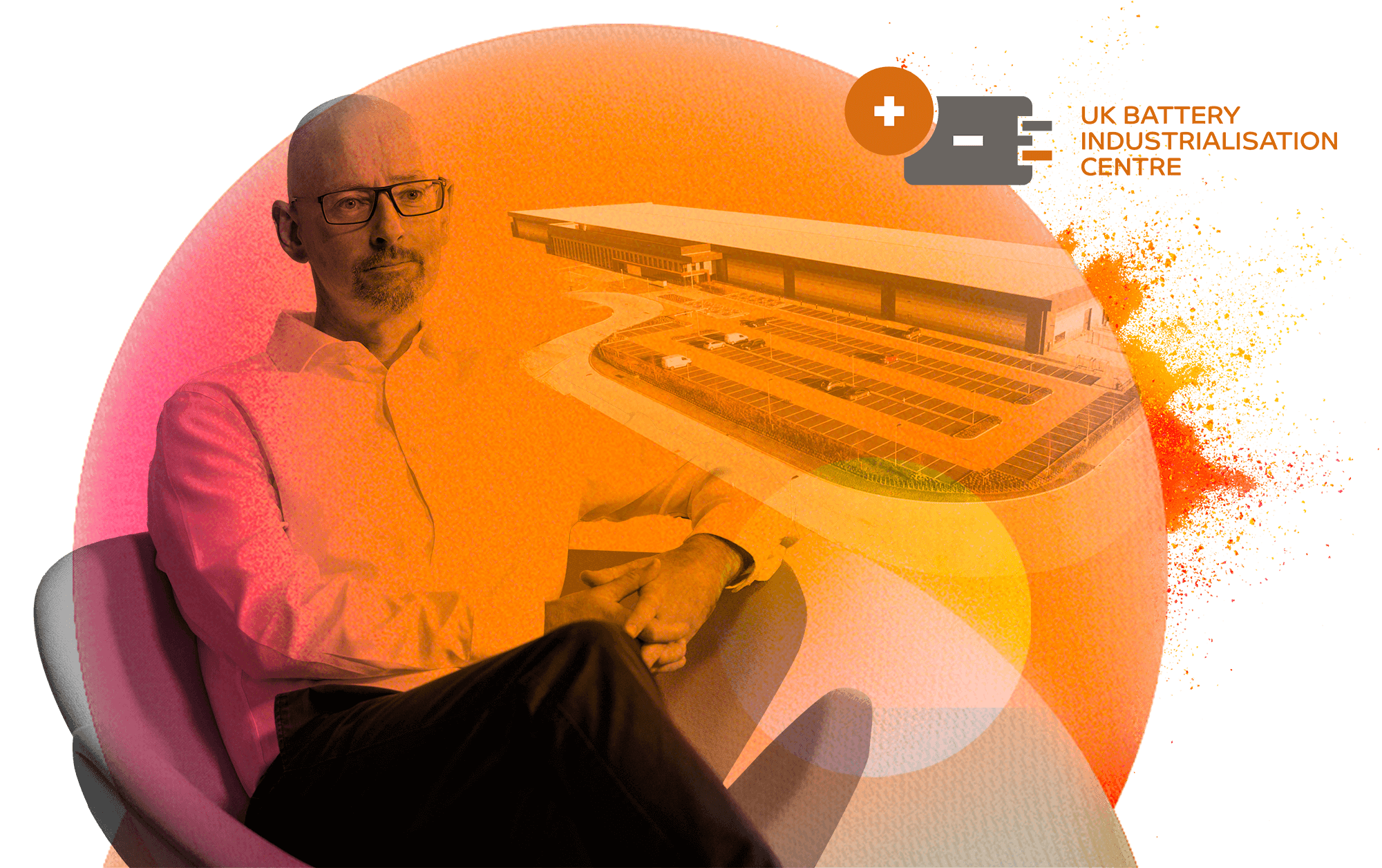
UKBIC Powers Nation Towards Electrification
It Starts Here
